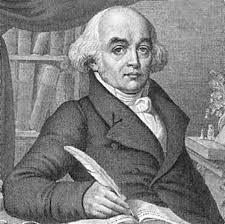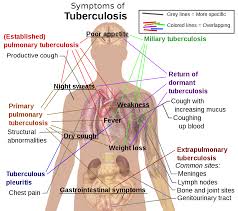By W. J. Hawkes, M.D., Los Angeles, Cal.

As I review modern history, five names stand out pre – eminent among all the many illustrious men of the period – Shakespeare, Napoleon, Washington, Lincoln, Hahnemann. Each in his sphere has no equal. Like the “Grizzly Giant” in the Redwood Forest of the lordly Sequoias of our own California, they stand supreme. Time, the great eraser of the commonplace, but adds to their glory.
True greatness is not an accident nor a freak of fortune. True greatness is measured by accomplishment, and accomplishment is achieved only by hard, intelligent and persistent effort, guided by logty aspiration.
Hahnemann possessed all these requisites in a remarkable degree. Besides, he was fortunate in that his father was a man of culture and great common sense. Habit of thought is one of the rarest and most valuable mental possessions. The elder Hahnemann realized this and was in the habit of daily giving his son lessons in thinking. It is related of him that frequently when walking with a friend he would abruptly stop, look at his watch, and ask to be excused, saying that “it was time for him to give Samuel his lesson in thinking.”
With this beginning in the training of a mind so well endowed by nature as was young Hahnemann’s, followed through all the subsequent years by uninterrupted and intense studious application, we need not so much wonder at the almost unbelievable amount and extent of his labor and accomplishment.
Hahnemann’s ignorant traducers, even those who laid claim to education and culture, accused him of being an ignorant Charlatan and quack; whereas, medical history contains the name of none more learned, not only in medical, but in all scientific, literary and general knowledge of his time.
At the age of twenty-two years he was master of twelve languages. It was his custom, when investigating a scientific problem, to learn the language in which treatises on the subject were originally written, to first master that language, so that he could study it in the original, He realized that a translation rendered less clear the text, and with him thoroughness and accuracy were almost a passion.
To the ordinary student or author it would be no “trifling matter” to undertake to learn a foreign language in order that he might better know his subject. No clearer light can be thrown on Hahnemann’s conception of work and thoroughness than by quoting the following extract from a discourse on the necessity of homoeopathic physicians learning the language in which the literature of their school was originally written:
“Is it possible, then,” He writes, “that any man who professes to be a Homoeopath, and to love his species, will not take the comparatively trifling trouble of acquiring this important preliminary to a correct acquistion of this great boon to the sick?
No, it cannot be !”
“A trifling matter!” the learning of the German language! What a light that quotation throws on the bigness of the man! Hull say: “The Register of his consultations, every day increasing in magnitude, forms at this moment a stupendous medical encyclopedia.
“We have seen upon one of the shelves of Hahnemann’s library thirty-six quarto volumes, of at least five hundred pages each, entirely written by his own hand; and to those who are curious as to the penmanship of the venerable octogenarian, who has never used spectacles, we can testify to writhing as fine and beautiful as the Mignonne of Didot.”
Dudgeon writes: “We may form some idea of Hannemann’s immense industry when we consider that he proved about ninety different medicines, that he wrote upwards of seventy original work on chemistry and medicine, some of which we in several thick volumes, and translated about twenty-four works from the English, French, Italian and Latin, on chemistry, medicine, agriculture and general literature, many of which were in more than one volume.”
And all this by “an ignorant Charlatan and quack!” In the language of the street, I ask, “Can you beat it?”
As a chemist, and as an authority on chemistry, he had no superior at the time in which he lived. He it was who first solved the problem of making Mercury soluble – Mercurius solubilis Hahnemannii-the soluble mercury of Hahnemann – is an article of commerce to-day.
He was first to recommend humane treatment of the insane, and foremost in emphasixing the importance and necessity of attention to hygiene, urging the use of pure water ad libitum externally and internally, and moderation in eating of simple food; and plenty of exercise in the open air and sunshine.
It will doubtless be astonishing, and, it is to be hoped, illuminating news to the medical scientists of to-day, in all schools, to learn that Hahnemenn was the first to recognize and publish the parasitical causation of disease, which he does on more than page 34 of that work he says:
“They must, therefore, have for their origin and formation, constant chronic miasms. Whereby their parasitical existence in the human organism is enabled to continually rise and grow.
And again, on page 210 of the same volume:
“Now, if we consider the great changes which must be effected by the medicine in the many, variously composite and incredibly delicate, parts of our living organism before a chronic miasms so deeply in rooted, and, as it were, parasitically interwoven with the economy of our life as psora is,” etc.
He was acknowledged by the scientific world of his time to be one of the most learned and profound students and philosophers of the age. He was acknowledged by his contemporaneous professional colleagues and medical writers to rank among the mosot learned, successful and scientific physicians of his time. Until he discovered. Formulated and promulgated the law “Similia similibus curantur.” Then he became a charlatan and a quack! Strange conclusion this of his so recent admiring medical colleagues! Great learning plus more knowledge equals ignorance and charlatanry! Because his profound and conscientious and marvelously industrious studiees had taught him more than they knew he immediately became in their sight anathcma! He had not changed one whit in any respect, except to grow! His life and conduct were the same as before. He was as good a citizen, as loving and true a husband, father and friend as before he had thus so greatly added to his learning. Yet, strange metamorphosis, he, presto, at once became and ignorant quack and charlatan! And these holy medical pharisees proceeded immediately to make of him a persecuted medical outcast. But did they? Could they? No! They did not know the ability, courage and persistence of the man. They did not realize the power of truth, which, crushed to earth, will rise again, which is mighty and will prevail! Dr. Croserio, in a letter to Dr. Neidhard in 1840, thus speaks of Hahnemann:
“Invalids from the highest classes of society are constantly flocking to the cabinet of Hahnemann; and, notwithstanding the heat of the season, which drives all our aristocratic families into the country, his Salon is always full, and the patient is frequently compelled to wait his turn from five to six hours before he can reach the sanctuary of Aesculapius. His weekly receptions – every Monday –are frequented by physicians and gentlemen of the first distinction from different sections of Europe. Hungary, Italy, Germany, England and the Iberian peninsula furnish visitors to this great man.”
The following letter appeared in the Leipsig General Gazette, as correspondence from Paris, regarding the celebration of Hahnemann’s eighty-fifth birthday:
“Paris, April 12, 1840. Day before yesterday Hannemann celebrated his eighty-fifth birthday. The elite of the German residents and many celebrated Frenchmen had assembled in his Salon in the evening to congratulate the aged Commander-in-Chief of our Homoeopathic phalanx, which is increasing every day. The old reformer if medicine, with his lofty brow and kindly smiling face, was the most lifelike exmplar of his system of healing, for there surely are but few persons of eighty-five years of age who are so active and busy as he, and who, in his profession, does the honors in many a crowded Salon long after midnight. Art and science had combined to celebrate his birthday worthily.”
I can do no better in closing this brief paper than to quote from Hahnemann’s historian, Thomas Lindsley Bradford, M.D.:
“Such was the life of a great benefactor to mankind. Born in the middle of a century whose influence shaped our own, a century prodigal in great men; in the year when Frederick, destined to be called the Great, was masquerading among the art galleries of Holland; wandering in boyhood on the fair hills of Meissen when all Europe was engaged in the Seven Years’ War and Saxony was crushed by iron heel; going forth the young scholar to Academic Leipsic just when the unfortunate monarch, Louis XVI., was ascending the guillotine-shadowed throne of France; when George the third was king and America was only a colony of England; when Rousseau was yet writing of the Rights of Man; when cynical Voltaire was mentor of the Prussian Frederick.
“A man in his prime, he was patiently searching for nature’s law of cure when the world was appalled by the Reign of Terror; when the little sous-lieutenant of artillery, Bonaparte, saw with indignant eyes the sans culottes of Paris, drunk with blood, besiege the dissolute court of Marie Antoinette; when noble Mirabeau yet lived; when Marat and Robespierre led in France the Devil’s Dance of Death.
“He was of the time of the Boston Tea Party and the declaration on the State House steps of Philadelphia; of the day of Washington and Lafayette. He saw Napoleon build an empire on the ashes of a revolution; saw him march across thee lands of Germany; saw Austerlitz; saw the edismal retreat from Moscow, and acted, there, as good physician to the sick and suffering army of 1813. He listened to the echoes of Waterloo- the story of St. Helena. He left Germany for brilliant Paris when Bismarck was student of twenty; he, the recluse, the scholar, the thinker, became in his old age the fashionable physician in the gayest city in the world.
“He lived through the changes of a world’s century; saw his system of healing rise from contempt to honor; knew hardship; died in luxury in the world’s capital.
“Scholar whom scholars honored and respected. Physician whom physician feared. Philologist with whom philologists dreaded to dispute. Philosopher whom adversity nor honors had power to change.”




